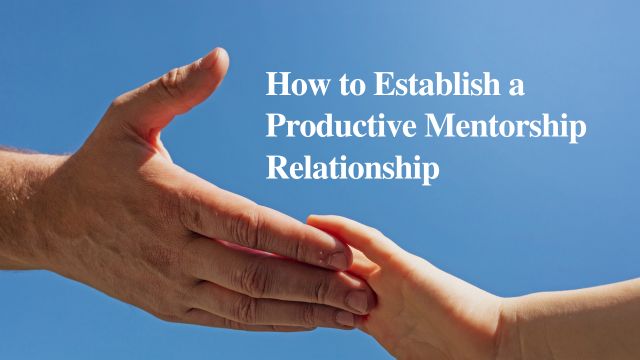Mentorship can be a powerful tool for personal and professional growth. However, not all mentorship relationships are created equal. A productive mentorship relationship requires both sides’ effort, clarity, and commitment. Here’s a guide to help you establish a meaningful and effective mentorship connection.
1. Identify Your Goals
Before you contact a potential mentor, take some time to consider what you want to achieve. Are you seeking career advice, skill development, or guidance on a specific project? Clear goals will help you find a mentor who aligns with your needs.
2. Find the Right Mentor
Look for someone whose experience and skills match your goals. This could be someone within your industry, someone with a track record of success, or someone whose career path you admire. Don’t be afraid to reach out to potential mentors who inspire you.
3. Make the First Move
When approaching a potential mentor, be clear and respectful. Introduce yourself, explain why you admire their work, and share what you hope to gain from the mentorship. Keep your initial contact brief and to the point.
4. Set Clear Expectations
Discuss and set clear expectations once your mentor agrees to work with you. Talk about how often you’ll meet, what topics you’ll cover, and how to communicate. Being on the same page helps prevent misunderstandings and keeps the relationship productive.
5. Be Prepared for Meetings
Come to your meetings prepared with your mentor. Have questions ready, and be clear about the topics you want to discuss. This shows that you value their time and are serious about making progress.
6. Be Open to Feedback
A key part of a successful mentorship is being open to feedback. Your mentor may offer advice or critique that could be hard to hear, but it’s meant to help you improve. Listen carefully and consider their suggestions seriously.
7. Take Initiative
Don’t wait for your mentor to drive the relationship. Take initiative by following up on advice, asking questions, and seeking additional resources. Showing you’re proactive will demonstrate your commitment and keep the momentum going.
8. Build a Genuine Relationship
While professionalism is important, don’t forget to build a genuine connection with your mentor. Share your interests, ask about their experiences, and appreciate their guidance. A strong personal bond can make the mentorship more enjoyable and impactful.9. Reflect and Adapt
9. Reflect and Adapt
Regularly reflect on what’s working well in your mentorship and what could be improved. Share your reflections with your mentor and be open to making adjustments. This ongoing dialogue helps keep the relationship dynamic and effective.
10. Show Gratitude
Finally, always express your gratitude. A simple thank-you goes a long way in showing appreciation for your mentor’s time and effort. Consider periodically sending a thank-you note or a small gesture of appreciation.
Establishing a productive mentorship relationship involves setting clear goals, finding the right mentor, and actively engaging. By being prepared, open to feedback, and respecting your mentor’s time, you can build a meaningful connection supporting your personal and professional growth. Remember, a successful mentorship is a partnership that requires effort from both sides. With these tips, you’ll be well on your way to creating a relationship that helps you achieve your goals and reach your full potential.





